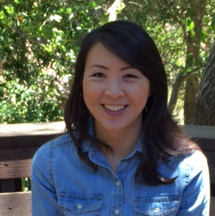 Teaching and Parenting Middle Schoolers
Teaching and Parenting Middle Schoolers
Having taught middle schoolers for 10 years, I would say I had the privilege of experiencing and learning all about this this pre-adolescent age group even before my own children reached this stage in life. Whereas most parents would dread the middle-school-aged years, I have enjoyed and still relish my interactions with my own daughter, a 13-year-old middle-schooler. Here are some of the teaching and parenting principles that gave excellent perspective and insight for parenting my own children.
Stephen Krashen’s Input Hypothesis “i + 1” Model
Krashen’s ideas on how learners gain language is they can only understand language input that is slightly more advanced than their current level. This reminded me that children can only progress information one step at a time, no matter how high our expectations may be. In fact, children will feel more successful if learning steps are broken down for them. I frequently ask my daughter to write down her goals and list steps she needs to take to accomplish them, along with ways I could support her in reaching her goals.
Howard Gardner’s Theory of Multiple Intelligences
People have many kinds of intelligences, including math, music, language, nature, interpersonal, art, movement, and intrapersonal skills. As a parent, my role is to help discover and identify my child’s strengths and interests, then help them develop it to their full potential. It’s personally very challenging to yield to their hobbies instead of seeing them pursue my own! I have given lots of opportunities for them to explore different activities in elementary school. Slowly, a skill or interest starts to emerge as my child’s favorite. That’s the one we nurture!
Gary Chapman’s Five Love Languages
Chapman describes five different ways people receive and give love: words of affirmation, acts of service, receiving gifts, spending quality time, and physical touch. I have discovered that my way of expressing love (acts of service) was not received nearly as effectively as when I communicated in my daughter’s preferred love language (words of affirmation). When I modified how I expressed my love to her, I found she was more receptive to me and our mother-daughter connection is much stronger.
Are any of these ideas new for you? What would you be willing to try so that your relationship with your child could be strengthened?
Wishing you all the best,
Jaime
Copyright © 2020 by GenParenting

Discovering the joy of teaching while in high school, Jaime pursued her B.A. in English at Santa Clara University. She also received a teaching credential and a M.A. in Education Administration from Santa Clara University. Jaime taught English Language Arts at Rancho Middle School, motivating and inspiring young people to become effective communicators and contributors in their community. From being a Middle School English Language Arts/English Language Development teacher to becoming a stay-at home mom, Jaime is an education consultant who presents literacy workshops. Her workshops focus on a combination of her ten years of teaching expertise with tried-and-true experiences that she uses with her own children. Jaime is also a Teacher Consultant with the San Jose Area Writing Project. Jaime’s mission is to share effective reading and writing strategies with families to encourage literacy.


Great ideas and thoughts. Thank you.
Our middle school children are full of adventures and lots of discovery. Cherish these moments as our preteens grow up quickly.